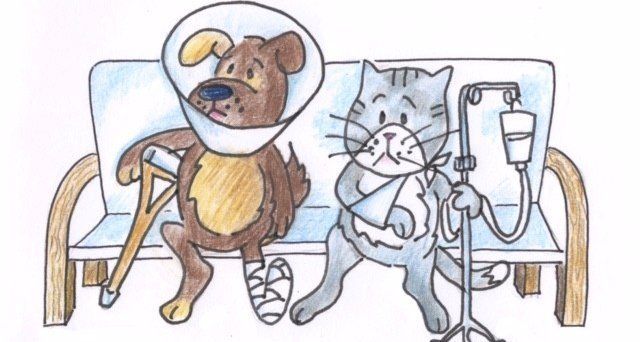2558 NIAGARA FALLS BOULEVARD • NIAGARA FALLS, NY 14304
GIVE US A CALL 716.731.8100
Visits By Appointment Only
NUTRITIONAL COUNSELING
Enhance The Life Of Your Pet
Every cat or dog has unique nutritional needs due to variations in size, breed, age, physical activity and environment.
Body Condition Score (BCS)
Obesity is one of the most serious health issues affecting our four-legged companions. From heart disease to joint problems, overweight or obese pets face a host of potential problems, and proper nutritional management is a big part of obesity prevention and treatment. Talk to your veterinarian about evaluating your pets’ body fat with a Body Condition Score (BCS). There are different numerical systems used for this, but ideally the animal should be well proportioned, with its waist observed behind its ribs when viewed from above, palpable (noticeable/easily touched) ribs with a slight covering of fat, with minimal fat on its abdomen.
Feeding Management & Environmental Factors
If you have tried to lose weight, you will know that diet and exercise are both important factors. The amount and type of physical exercise your pet receives directly affects how much they’ll need to eat, so you and your veterinarian should review the types of activities they enjoy, including leash walks, time in the backyard, and off-leash activities, as well as how frequently these activities occur. Studies show shown that environment, such as indoor confinement and physical inactivity, has a direct impact on nutrition.
Home Monitoring
No one knows better than you exactly what your pets eat and how they behave at home. Adult animals in good health and physical condition should be assessed regularly, and pregnant, senior, and growing animals need even more frequent monitoring. If you notice any changes in their appearance or behavior, or if symptoms such as vomiting or diarrhea develop, call your veterinarian immediately.
Follow Us
Companion Care Animal Hospital
2558 Niagara Falls Boulevard
Niagara Falls, NY 14304
Serving Grand Island, North Tonawanda & Beyond

